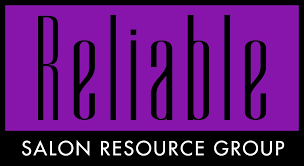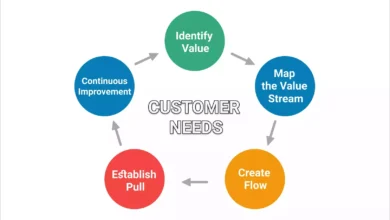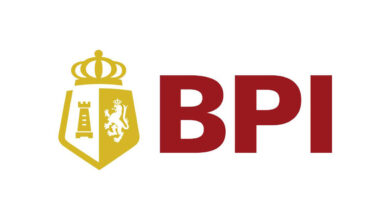The Power of Recognition: How Corporate Awards Elevate Workplace Culture

Recognizing excellence in the workplace is more than just a pat on the back. Corporate awards, such as the crystal globe award, are powerful tools that can significantly boost morale, enhance employee engagement, and cultivate an environment where everyone strives to do their best. By celebrating employees’ achievements, companies demonstrate that they value their team, which can benefit individuals and the organization.
The importance of recognition cannot be understated. Employers who prioritize acknowledging their staff’s efforts and successes often see a noticeable difference in workplace dynamics. When workers feel valued, they are more likely to stick with the company, which lowers turnover and builds a more dependable and seasoned workforce.
Benefits of Corporate Awards
When companies acknowledge hard work and success, it can lead to increased job satisfaction, higher levels of motivation, and even greater productivity. According to a study by Gallup, organizations with strong employee recognition programs have 31% lower voluntary turnover rates. Additionally, awards can foster healthy competition, inspiring employees to push the boundaries of their potential.
Research has shown that recognition is not just about making employees feel good; it’s about creating a culture of appreciation. Acknowledging achievements helps build a positive feedback loop where employees feel valued and motivated to maintain their high standards. This creates an environment where excellence is expected and rewarded, leading to overall organizational success.
This culture of recognition also aids in talent retention. Employees are more likely to remain with an organization that values their contributions, reducing the costs associated with high turnover rates.
Types of Corporate Awards
- Performance-Based Awards: These awards recognize individuals or teams who have achieved specific goals or exceeded expectations. By setting clear, measurable objectives and rewarding those who meet or surpass them, companies can drive performance and encourage employees to strive for excellence.
- Peer-to-Peer Recognition: Allowing colleagues to nominate each other for awards fosters a sense of community and mutual respect. This type of recognition shows that appreciation is both top-down and lateral, contributing to a more inclusive and supportive workplace atmosphere.
- Service Awards: Celebrating milestones, such as service years, helps acknowledge loyalty and dedication. Long-term employees bring valuable experience and stability, and recognizing their commitment reinforces their importance to the organization.
- Innovation Awards: Highlighting those who contribute creative ideas or solutions promotes a culture of innovation. Recognizing innovation encourages employees to think outside the box and continually seek better ways to accomplish tasks and solve problems.
Each type of award serves a unique purpose and can be tailored to fit the organization’s specific goals and culture. Combining different types of awards can address various achievements and behaviors, creating a comprehensive recognition program.
Implementing a Recognition Program
Setting up an effective recognition program involves several key steps:
- Define Objectives: Understand what you want to achieve with your recognition program. This could include improving morale, increasing productivity, or reducing turnover. Clearly defining these objectives will guide the program’s development and implementation.
- Establish Criteria: Clear criteria for what constitutes an award-worthy performance are essential. This ensures fairness and transparency in the recognition process. Employees should understand what behaviors and achievements will be recognized and rewarded.
- Promote the Program: Communicate the program details to all employees, ensuring they understand how to participate and be recognized. Effective communication can be achieved through meetings, emails, or company newsletters. The more informed employees are, the more engaged they will be with the program.
- Review and Adjust: Regularly review the program’s effectiveness and make adjustments as necessary to keep it relevant and impactful. Solicit employee feedback to understand what’s working and where improvements can be made. Continuous improvement ensures the program remains dynamic and effective.
Implementing a recognition program is an ongoing process that requires commitment and adaptability. By following these steps, companies can create a structured, inclusive, and sustainable program that meets their unique needs.
Elevating Organizational Values and Ethics
Corporate awards celebrate individual achievements and reinforce organizational values and ethics. By aligning award criteria with company values, organizations can promote behaviors that align with their mission and vision. This alignment fosters a culture of integrity and excellence, setting ethical conduct standards across the entire workforce.
Best Practices for Award Programs
To maximize the impact of your recognition program, consider the following best practices:
- Timely Recognition: Acknowledge achievements as soon as possible to reinforce positive behaviors. Immediate recognition helps to connect the positive behavior with the reward, making the recognition more meaningful and effective.
- Personalization: Customize awards to fit the preferences and personalities of recipients to make the recognition more meaningful. Personal touches, such as tailored messages or choice-based rewards, show the company understands and values the individual’s unique contributions.
- Involve Leadership: Having leaders participate in the recognition process can reinforce the value of the awards and set a positive example. When leaders actively recognize and celebrate achievements, it underscores the importance of the program and can inspire others to follow suit.
Moreover, integrating employee feedback can help continuously improve the program’s effectiveness over time.
Conclusion
Incorporating corporate awards and recognition programs into your workplace culture can profoundly impact employee satisfaction and overall business success. By celebrating achievements, big or small, companies can create an environment where employees feel appreciated and driven to excel. Implementing thoughtful and well-structured recognition programs can lead to long-term benefits for both employees and the organization.
Investing in a workplace recognition program is more than just a good business practice; it’s a meaningful way to show employees that their effort and dedication are valued. Companies can build a happy and productive work environment where everyone flourishes by cultivating an appreciation culture.



